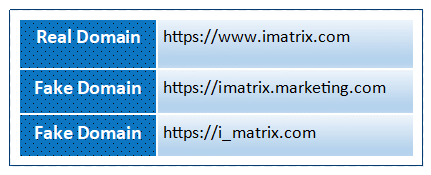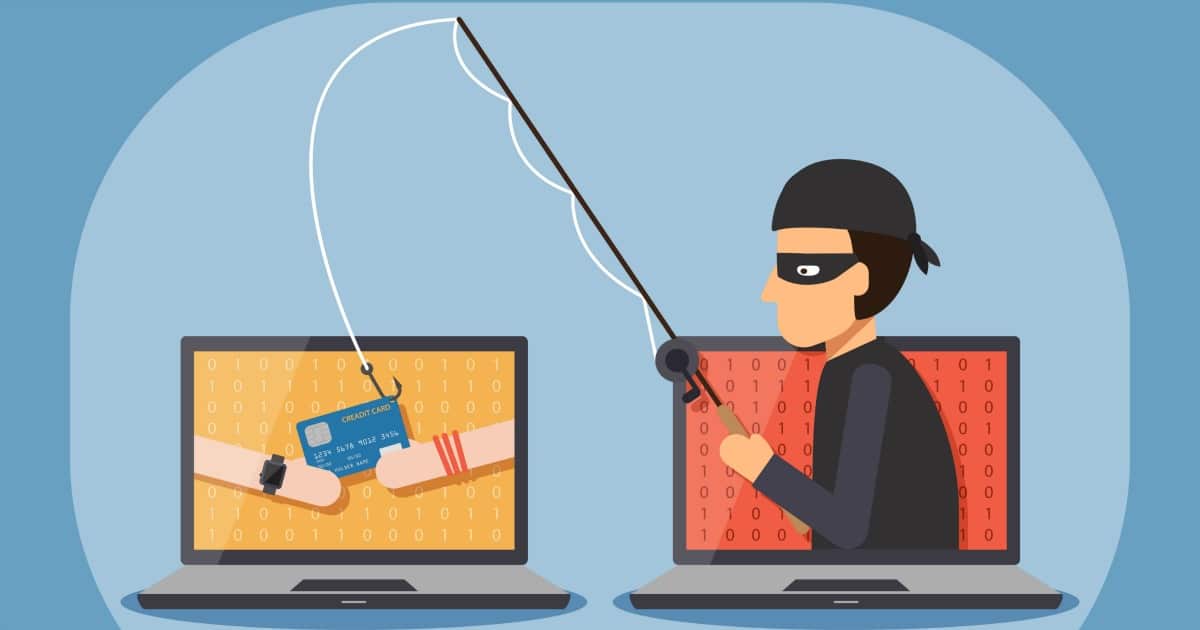6 Easy Ways to Protect Your Business from Vishing and Phishing
Lurking in the depths of the internet and hiding behind phone lines are cyber criminals hoping to steal your information – often for malicious reasons. Don’t worry, there are precautions you can take to prevent these attacks and iMatrix is here to help you learn how. The first step to fighting hackers is to understand what phishing and vishing are.
Phishing is an illegal attempt to collect your private data that can occur on the internet, particularly by email.
Vishing is a term used to describe a similar practice that occurs over the phone. Deceptive individuals will make phone calls or leave voicemails claiming to be representatives of a reputable company requesting personal information.
What Every Business Should Know About Vishing and Phishing Attempts
Often times, vishing and phishing attackers will work tirelessly to gather information about their victims before executing their crime. The perpetrator may collect information about the victim’s business, location, and which companies they work with so that he or she can pose as a reputable contact from a trusted source.
These criminals don’t just use computers as their weapon of choice, they may also strike over the phone. Vishing attackers range from complete strangers to people you know with malicious intent, such as a business competitor. Some businesses even use surveillance tactics to obtain information about their competition so that they can either discredit the company or poach their clients.
So how can you defend yourself and your business against vishing and phishing attempts?
6 Easy Ways to Protect Your Business from Vishing and Phishing
Every person at your business should be educated on phishing and vishing so that they can fight off an attack at any time. Not only will you be protecting your company, you will also be safeguarding your valued clients’ information.
1. Don’t open emails or links from sources you don’t recognize.
If you receive an email from an unknown sender, think twice before opening it. Oftentimes, hackers will send emails with enticing titles to trick web users into clicking on the message, which could then infect their computer with a virus or probe you to enter sensitive data. Be wary of emails from friends and colleagues that feature unusual titles that encourage you to open the message or link, such as “Check this out!” or “Free iPad!”
2. Be skeptical of phone transactions.
If you receive a call from a company regarding financial or account issues, verify that the company and caller are genuine before transmitting any sensitive information. Tell the representative that you will call she or he back and hang up. Call the main number located on the company’s website or an official financial statement. When you call, ask for the representative you were previously speaking with. If he or she isn’t an employee, you’ll know it was vishing attack!
3. Pay attention to the URL. 
Scammers often attempt to mimic domain names by using part of another site’s name as a subdomain. Look closely at the domain name in the search bar. Notice subtle misspellings or character additions. Compare that URL with the one you find using a web search on a secure browser.
4. Be suspicious of unknown callers.
If someone calls asking for personal information, it’s okay to be careful! If this company is legitimate, they will applaud your savvy judgement. Be aware that scammers will often replicate a phone number so closely that you think the call is coming from a known source. To be safe, hang up and call the representative back on a verified number.
5. Use Pop-Up Blockers
When using a browser or surfing a specific site, a small window may suddenly appear on your screen. These pop-ups are usually advertisements. While these pop-ups can be from legitimate sources, they can also be used by scammers to direct users to a site that will corrupt the user’s computer or steal information. It’s best to avoid them all together! Most web browsers and anti-virus softwares have options to block pop-ups.
6. Recognize Vishing Tactics.
Vishers frequently rely on scare tactics to extract information from their victims. The scammer may claim the victim has overdue payments, account issues, or unpaid taxes. He or she may threaten financial repercussions, legal action, or even police arrest if the victim doesn’t comply with the caller’s demands. Do not blindly provide financial or personal information over the phone, even if the caller insists it’s necessary. Do more research on the case and follow the steps featured above to validify the call.
Ready to Rumble
Remember to always exercise caution when entering private data on the internet or disclosing information over the phone. Now that you’re armed with information on how to fight phishing and vishing attacks, you can better protect your private information while fighting crime! No superhero cape required, but it is encouraged. Because who doesn’t love wearing a cape?

Looking for more ways to help your business?
Here are a few articles that can help:
What You Should Know to Make the Most of Your Newsletters
Showcasing Your Brand When Responding to Online Reviews
3 Ways to Provide Exceptional Customer Service for Long Term Success




